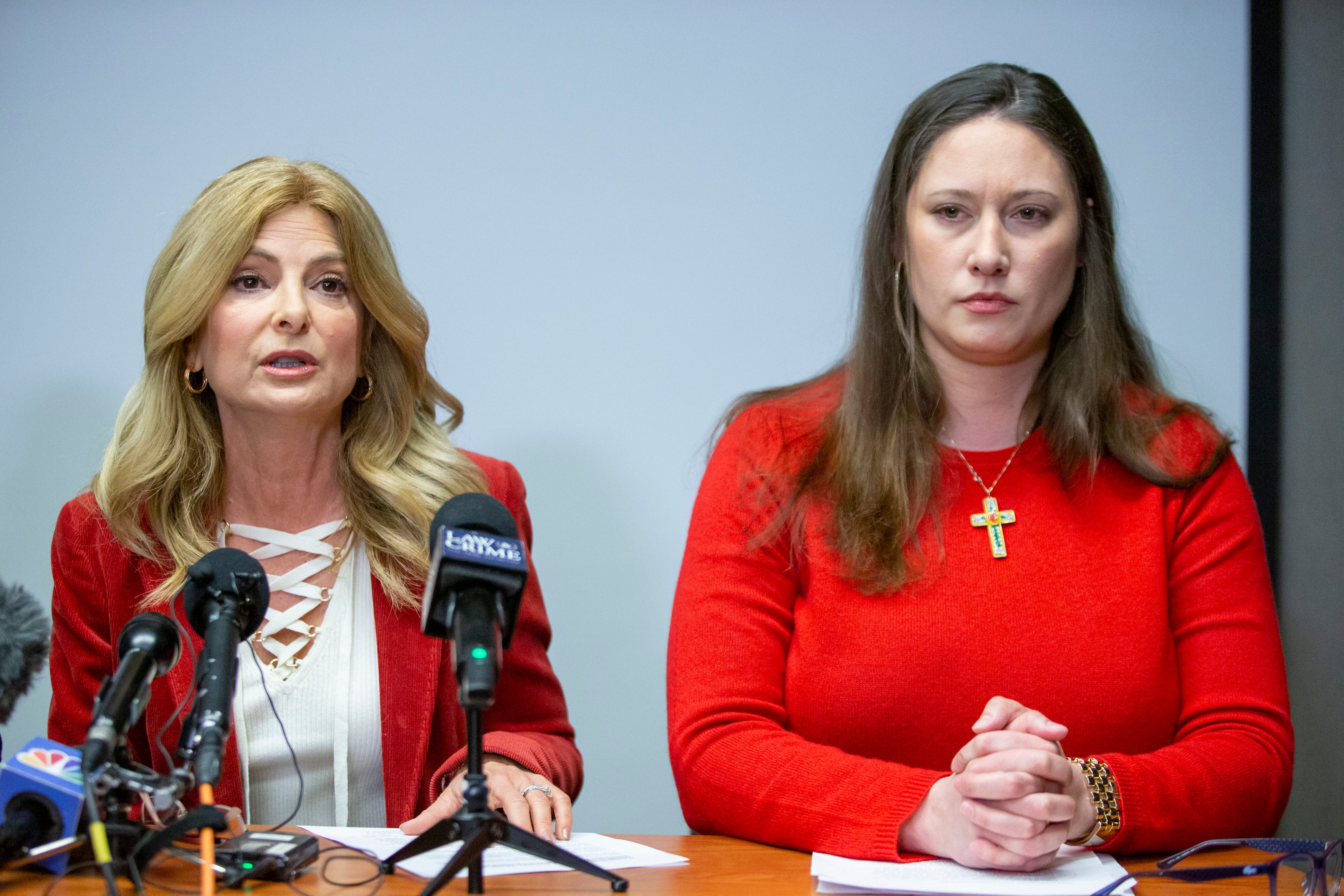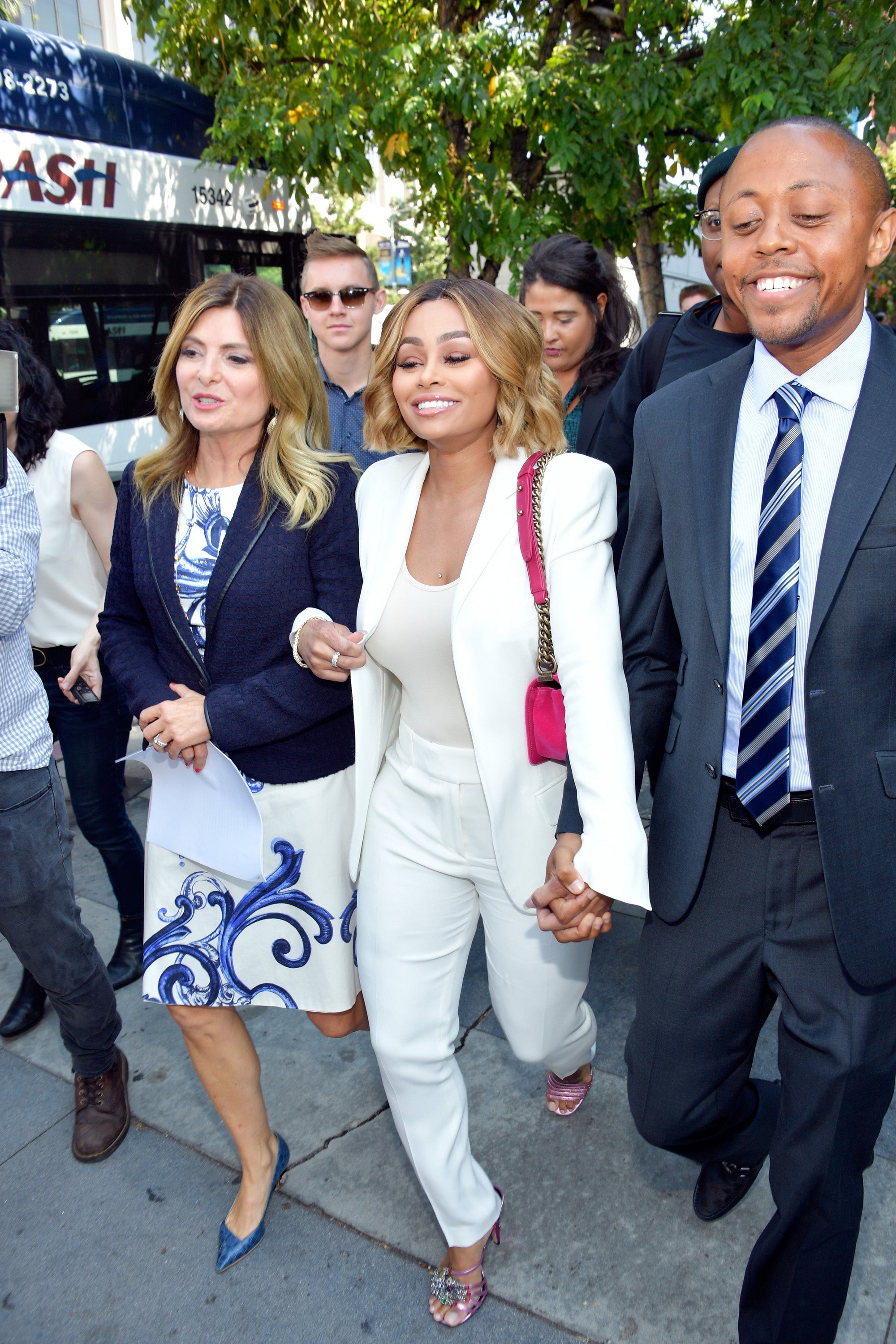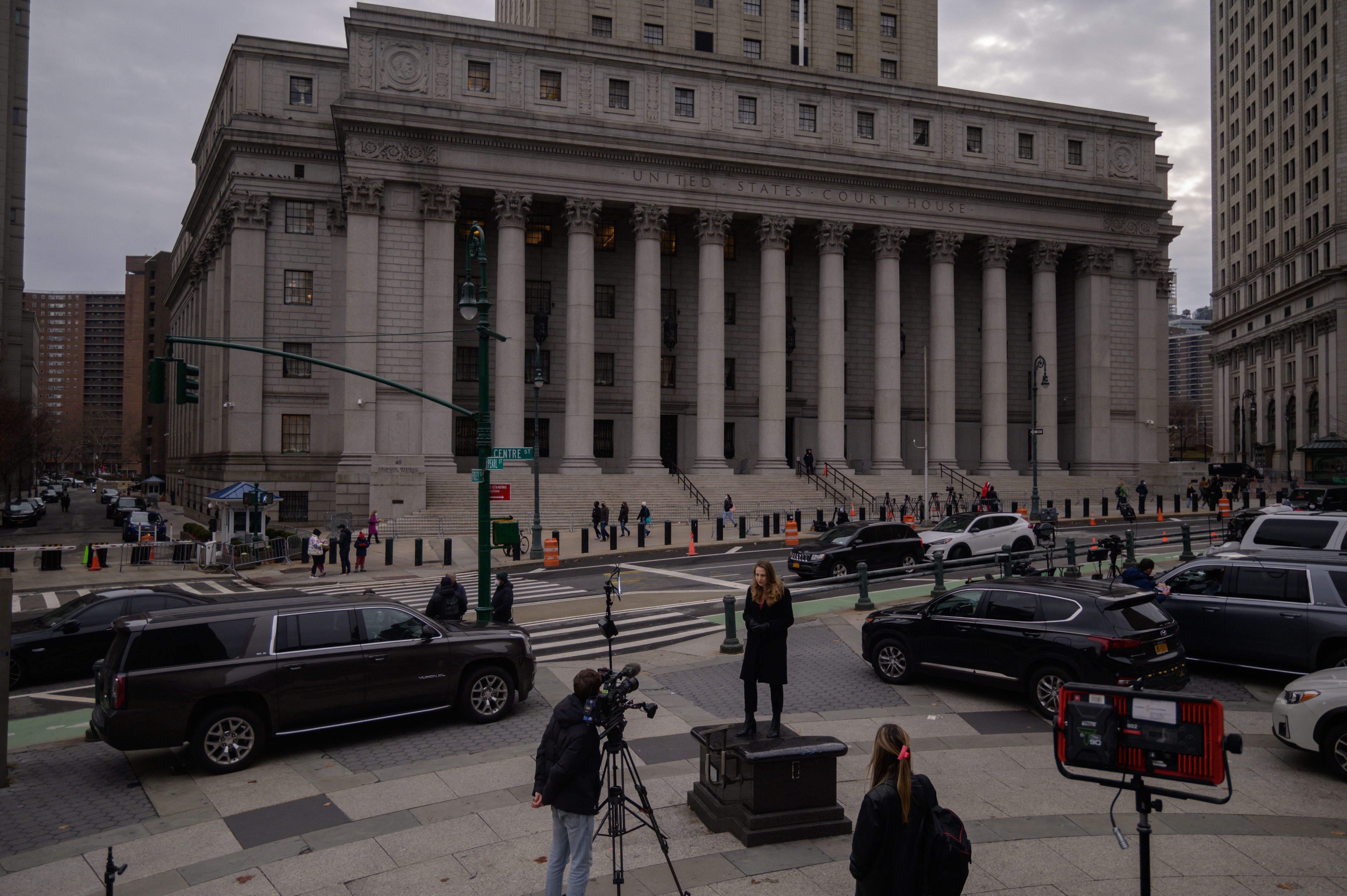The woman who represented eight of Epstein’s victims on what’s to come in the ‘heartbreaking’ Maxwell case
Attorney Lisa Bloom has represented clients who brought allegations against such powerful figures as Donald Trump, Bill O’Reilly, and Bill Cosby. She speaks to Clémence Michallon


Lisa Bloom has been an attorney for three decades. She has been involved in several high-profile cases, many of which have involved people who say they were victims of sex crimes and harassment.
In recent years, she has represented clients who brought allegations against such powerful figures as former president Donald Trump, former Fox News anchor Bill O’Reilly, former comedian Bill Cosby, and Guess co-founder Paul Marciano. Her clients have included Mischa Barton, Janice Dickinson, and Blac Chyna. She’s used to media appearances, seemingly always ready to shoot a social media explainer or a TV spot. Her trial analyses and explainers are lean and to the point. She knows how to talk about the law to people who aren’t familiar with its intricacies.
“I’ve always had a passion for it, since I was a little kid,” she says of her work with women coming forward against powerful men. Bloom brings up her mother, Gloria Allred, a high-powered attorney with an established track record of taking on high-profile women’s rights cases.
Growing up with Allred, Bloom says, “was a big factor” in shaping her professional life.
“She always made me aware of injustices against women. When I was a child, she and I went to demonstrations and marches. And she always talked to me about her work.” One of the things Allred imparted to her daughter, Bloom recalls, is that “women get more radical as we get older because we experience more injustices”.

A graduate of UCLA and Yale Law School, Bloom started her career at a civil rights law firm. She eventually accepted a position at her mother’s firm, still on the civil rights side, and stayed there for nine years. In 2014, she began working full-time for her own company, The Bloom Firm, where she remains now.
When Ghislaine Maxwell’s criminal trial opened on 29 November 2021 in New York City, Bloom sat inside the Thurgood Marshall United States Courthouse in downtown Manhattan. The date held meaning for the attorney, who had represented eight of Jeffrey Epstein’s victims prior to his death in August 2019. Later in the day, she reflected on the opening arguments both from the prosecution (to whom she gave “an A, but not an A plus” on social media) and the defence (one sentence appealed to her; the rest left her unconvinced). Over the following weeks, Bloom remained an active commentator and analyst in relation to the trial – a role she has kept up following Maxwell’s conviction on five of six charges.
The guilty verdict, Bloom says, moved her to tears, because she had worked “very closely” with the eight Epstein victims she represented, “one of whom also had allegations” against Maxwell. “I had sat with them for years and heard the suffering that they have gone through,” Bloom says. “I mean, lifelong suffering … So when that verdict came in, it was deeply moving that at last she was brought to justice.”
Bloom believes Maxwell’s conviction signals trouble for Prince Andrew. The royal has been sued by Virginia Giuffre, who alleges that she was sexually trafficked to Andrew by Epstein and Maxwell when she was underage. Andrew has denied all of the allegations against him.
“I think he’s in trouble,” she says. “I think [an effort by Andrew’s lawyer to get the suit dismissed] is going to be denied, meaning that Virginia’s case is going to go forward against him.” A few days after Bloom and I speak, a federal judge rules that the suit against the prince can go ahead. A day later, Andrew is stripped of his honorary military roles and royal patronages.

Also making headlines is a juror in Maxwell’s trial, who, after the proceedings had wrapped up, told The Independent that he was a survivor of sexual abuse. Another juror later shared a similar disclosure with The New York Times. Maxwell’s defence lawyers have said that she plans to request a new trial. Prosecutors have offered to drop perjury charges against Maxwell if the case continues to sentencing later this year, but the defence asked for questions about those charges to be postponed until a judge had ruled on the new trial request.
In an email, Bloom says she finds the situation “heartbreaking”.
“Imagine what it took for the accusers to get to that guilty verdict: decades of living with the fallout of their victimisation, making the momentous, life-changing decision to testify, waiting endlessly for the trial, walking into that courtroom and baring the most humiliating details of their lives, enduring brutal, insulting cross-examinations,” she says.
“I hope that if Maxwell does get a new trial, the victims will find the courage to return and do it again. The world owes them an incomparable debt of gratitude for their courage.”
During our exchange, Bloom is quick on her feet and loquacious. Her opinions are firm, and rooted in her own experiences. She’s firmly against the death penalty (“I can’t even believe we still have the death penalty in this country”). When I ask her about the biggest failure she wishes she could fix in the American criminal justice system, she brings up structural racism, and the ways in which the system disproportionately targets people of colour.
Bloom’s directness applies to her own track record too. There is an experience she has openly called a “colossal mistake” on her part – one that contrasts with the rest of her work.

On 7 October 2017, Bloom resigned as an early adviser to Harvey Weinstein. Her resignation came two days after The New York Times ran an article by Jodi Kantor and Megan Twohey containing the first detailed allegations of sexual harassment and misconduct by Weinstein, and three days before The New Yorker published its own exposé by Ronan Farrow. Kantor and Twohey reported on Bloom’s involvement in their book on the Weinstein allegations She Said, and Farrow shared his own account in his book Catch and Kill. The conduct depicted by Kantor, Twohey and Farrow, including in a 2016 memo published in 2019, is hard to reconcile with Bloom’s work helping victims of sexual crimes.
A paragraph on Bloom’s own website (titled “2017: The Colossal Mistake”) addresses her original decision to represent Weinstein. “When I make mistakes, I own them and say what I can given the strict rules banning attorneys from discussing anything about a former client’s case,” Bloom writes on the website. She adds a statement initially released in 2019, which reads in part: “I thank [journalists] Jodi Kantor, Megan Twohey and Ronan Farrow for forcing me to confront the colossal mistake I made in working for Weinstein. While painful, I learn so much more from my mistakes than my successes. When the first woman went on record accusing him of sexual assault, I immediately resigned and apologised, but that was not enough.”
Bloom is similarly straightforward when I bring up the subject of Weinstein. “I feel deeply embarrassed that I was ever associated with him, that I allowed myself to be fooled and to be in his orbit,” she says. “It was a huge mistake, and it’s one that I will always live with.” At the time of Bloom’s involvement with Weinstein, she says, she didn’t think he would end up facing allegations from dozens of women.
“We tend to believe people, especially when we’re talking to them face to face,” she says. “Some people are very convincing, especially if they’re very confident, and that has no relationship to whether they’re telling the truth. So I was fooled. I take some comfort in the fact that hundreds of people worked with him and they were also fooled, but still, I hold myself to a higher standard. I feel like I should have known better.”
It remains hard to make sense of Bloom’s decision to advise Weinstein, especially as she seems so keenly aware of what’s at stake for victims who take their allegations to court.
“Every case I have is David and Goliath – well, Davida and Goliath, because it’s always women,” she says. Even four years after the Me Too movement gained mainstream momentum, the efforts plaintiffs must deploy in order to prevail seem overwhelming, and their victories hard-earned. But Bloom believes progress is happening.
“We are not making enough progress fast enough, but we are making progress, I assure you,” she says, citing legal advancements for victims in New York and California. She believes the culture is changing; that “we are waking up, we are doing better”.

Maxwell’s conviction, she says, shows that jurors now more readily believe victims of sexual abuse, “even if they have made mistakes, even if their prior statements are a little bit different from what they say in the courtroom, and even if they have had trouble in their lives”.
What Bloom is referring to is a series of tactics often deployed by defence lawyers whose clients are accused of sexual crimes. Attorneys may seek to discredit accusers by pointing to discrepancies, even minor, in their recollections of an alleged crime. They may try to sway a jury by pointing out that a plaintiff kept in touch with an alleged abuser, or that they didn’t report a crime right away.
The myth of the perfect victim is a challenge prosecutors must face in sex crime cases: trauma causes the very behaviours (spotty memories, continued contact with an abuser) that can be weaponised against victims in the courtroom. But jurors, Bloom believes, have a deeper understanding of trauma than they used to. Expert witnesses can play a crucial part in imparting key psychological concepts to a jury, too.
“I think there’s more awareness,” Bloom says. “Some industries are better. The entertainment industry, I think, has taken the Me Too movement seriously. It still has a long way to go, but they’re taking it seriously. The fashion industry is still in the dark ages. The music industry is still a disaster for women. There’s still a lot more work to be done.”
Bookmark popover
Removed from bookmarks